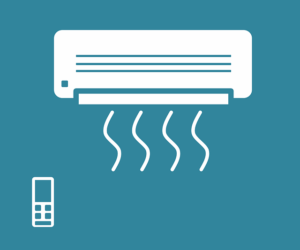Hybrid electric tankless water heaters and solar panel integration offer on-demand hot water, energy savings, and environmental benefits. Space-saving, efficient, and eco-friendly, these systems eliminate storage tanks, reduce carbon footprints, and lower utility bills. Installation requires electrical assessment, selection of suitable models, and placement for optimal energy absorption. This technology provides a sustainable whole-house solution, especially in sunny regions, aligning with modern lifestyles demanding instant access to hot water.
“Discover the future of hot water heating with the innovative combination of hybrid electric tankless water heaters and solar panels. This cutting-edge technology offers a sustainable and efficient solution for your home’s hot water needs. In this comprehensive guide, we’ll explore the benefits, installation process, and cost savings potential of this eco-friendly setup. From understanding the advanced functionality of these heaters to navigating the step-by-step installation process, you’ll gain valuable insights into transforming your hot water system.”
- Understanding Hybrid Electric Tankless Water Heaters
- Benefits of Solar Panel Integration for Hot Water Systems
- Installation Process: A Step-by-Step Guide
- Energy Efficiency and Cost Savings Potential
Understanding Hybrid Electric Tankless Water Heaters

Hybrid electric tankless water heaters are a cutting-edge solution for both residential and commercial properties, offering a range of benefits over traditional storage tank heaters. This innovative technology combines the efficiency of on-demand heating with the environmental friendliness of renewable energy sources like solar panels. Instead of storing large amounts of hot water, these tankless systems heat water only when needed, resulting in significant energy savings.
The electric tankless water heater operates as a point-of-use (POU) system, providing instant hot water directly from the water supply line. This compact and space-saving design allows for easy installation in various locations, catering to both whole house systems or specific applications that require continuous hot water, such as kitchens and bathrooms. By leveraging tankless technology, users can enjoy a consistent supply of hot water without worrying about running out, making it a practical choice for modern lifestyles demanding instant hot water.
Benefits of Solar Panel Integration for Hot Water Systems

Integrating solar panels with an electric tankless water heater offers a plethora of advantages for both residential and commercial properties. One of the key benefits is the significant reduction in energy costs. Solar energy is a renewable and free source, allowing users to take advantage of nature’s bounty to heat water without relying on traditional electricity grids. This transition results in substantial long-term savings, especially in regions with high electricity rates.
Additionally, tankless water heaters with solar integration provide instant hot water and on-demand heating, eliminating the need for storage tanks. This space-saving technology is ideal for modern, compact living spaces or areas where real estate is premium. Moreover, these systems contribute to a more sustainable and environmentally friendly approach to electric water heating, as they reduce the carbon footprint associated with conventional tank-based heaters. With their efficient design, tankless heaters minimize energy wastage, making them an attractive option for those seeking energy-efficient heating solutions while ensuring continuous hot water supply.
Installation Process: A Step-by-Step Guide

The installation process for a hybrid electric tankless water heater paired with solar panels involves several key steps. First, assess your home’s electrical system to ensure it can support the additional load of the tankless heater and solar panel setup. This may include upgrading circuit breakers or wiring as needed. Next, select the appropriate tankless water heater model based on your household’s hot water demand and energy requirements, ensuring compatibility with your solar panels.
Proceed by installing the electric tankless water heater near the point of use, such as a kitchen or bathroom, to minimize hot water travel distance. Connect the heater to your home’s electrical supply and ensure proper grounding for safety. For the solar panel installation, choose an area that receives ample sunlight year-round and is free from obstructions. Mount the panels securely, aligning them with the south (or equivalent in the northern hemisphere) to maximize energy absorption. Finally, wire the solar panels to a controller or inverter designed to manage energy storage and distribution for your whole house system, enabling efficient on-demand heating and continuous hot water.
Energy Efficiency and Cost Savings Potential

The combination of a hybrid electric tankless water heater and solar panels offers significant energy efficiency and cost savings potential. By utilizing on-demand heating technology, these space-saving heaters provide continuous hot water without the need for a storage tank, eliminating standby energy consumption. This instant hot water feature not only reduces energy usage but also minimizes utility bills, making it an attractive option for eco-conscious consumers.
Moreover, pairing this setup with solar panels amplifies the benefits. Solar energy can cover a substantial portion of the heater’s electricity demand, further reducing reliance on grid power and lowering operating costs. The tankless technology ensures efficient electric water heating, as it heats water only when needed, aligning perfectly with the variable output of solar panels. This integration contributes to a more sustainable and affordable whole house system, especially in regions with high sunlight exposure.
Combining a hybrid electric tankless water heater with solar panels offers a sustainable and efficient solution for hot water systems. By leveraging renewable energy, this setup reduces reliance on conventional power sources, resulting in significant energy cost savings. With proper installation and maintenance, homeowners can enjoy a reliable, eco-friendly hot water supply, contributing to a greener future while lowering their environmental impact.






